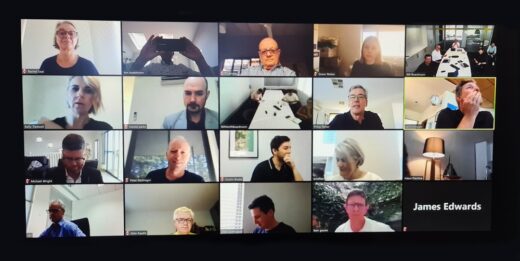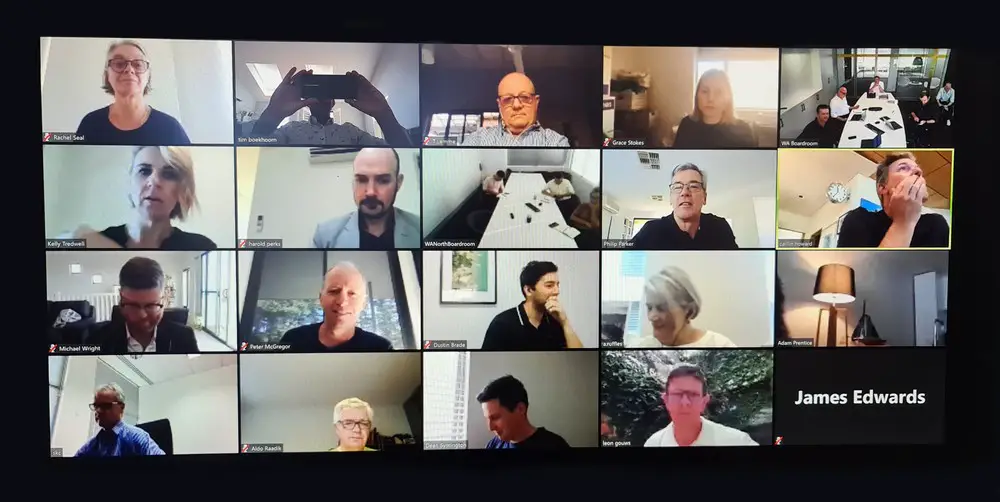Property Market Coronavirus Impact Advice, COVID-19 Real Estate Tips in 2020, Guide
COVID-19 Remote Working
23 Apr 2020
How COVID-19 changes the way we work
17 Apr 2020
Business Impacts Survey for COVID-19 Crisis
New CEDIA Survey Aims to Gauge COVID-19 Business Impacts
CEDIA® is calling on professionals in the residential technology integration industry to respond to a new survey concerning the business impacts of the COVID-19 epidemic. The survey, conducted in collaboration with The Farnsworth Group, covers topics including project bidding, ongoing jobs, impact on current operations, and near-term outlook. The survey is seeking participation from integrators in the United States, United Kingdom, and Canada.
“Integrators are navigating uncharted territory and the responses from this survey will help us craft the most effective service and response possible for our members and the industry,” said CEDIA Vice President of Marketing and Industry Relations, Cris Pyle. “We know the global pandemic has created a new normal and CEDIA is working nonstop to rise up and meet the challenges at hand. It’s critical to receive as much direct feedback from key stakeholders as we can, and this survey gives integrators a focussed voice to aid our efforts.”
The deadline to take the survey is 30th April 2020.
CEDIA continues to provide a powerful portfolio of guidance, services, and free education opportunities to support the industry and the hard-working integrators who service and install technology and key tech infrastructure in the home. Through our #CEDIASTRONG campaign, CEDIA is standing side-by-side with the industry at large and our nearly 40,000 members throughout the world.
The survey is now open for integrators to detail how COVID-19 has impacted their business and it can be accessed here.
About CEDIA
CEDIA® is the global industry association and central touch point for companies that design, manufacture, and integrate technology for the home. With a keen focus on education, workforce development, and industry standards, CEDIA continues to build on its more than 30-year legacy as the industry leader in delivering the resources that set members on a pathway to prosperity. CEDIA delivers market intelligence through proprietary research, fosters community within the channel, and cultivates awareness with industry partners, consumers, and connected stakeholders.
CEDIA co-owns Integrated Systems Europe, the world’s largest AV and systems integration exhibition, and founded CEDIA Expo, the world’s largest annual residential technology show. Over 3,900 global CEDIA member companies deliver technology solutions that allow families to experience the best moments in life from the comfort of their own home — Life Lived Best at Home™. To learn more about CEDIA, visit www.cedia.net.
24 Mar 2020
Doing your homework on working remote
With more than 300,000 people infected with coronavirus around the world, many companies are swiftly implementing work-from-home policies to avoid all non-essential contact for staff.
For organisations new to or unfamiliar with running their businesses off-site, this can pose a challenge and leave many feeling unsettled. Here are some simple ways to ensure your chances of a successful transition are less…remote.
Show everyone who’s boss
It’s important for managers, leaders and CEO’s to be across online tools and channels to lead by example and ensure they aren’t just throwing their staff in the deep end and expecting them to cope. Instead, leaders should be engaging with the process and be seen doing so. Not only does that send a signal that this is the accepted way we’ll be doing things from now on, but it also fosters unity, and shows that we are all in this together.
Hames Sharley employees during a Zoom meeting:

Just keep talking
There’s no avoiding the loss of face-to-face interaction that comes with the need to isolate and working alone in front of a computer screen is vastly different from the hustle and bustle of your usual office environment. As a result, clear communication and collaboration become all the more important. There are plenty of tools to keep staff connected and teams synchronised, but it’s important to realise that talking through technology isn’t as precise as personal interaction: a rushed email or misinterpreted Slack comment can leave the best of us feeling anxious, particularly at his unsettling time.
Try picking up the phone or doing a quick video chat to ensure communication is transparent and encourage your team to socialise and chat online in the same way they would in a real-life office. One idea is the use of an internal Instagram account, which could feature images and live chats from remote teams. Sending images of lunch spots, conversations around daily challenges or motivations, and the encouragement of non-work topics can boost the morale of your team and connect colleagues on a deeper level. You can consider time tracking for architects.
COVID-19 is not the only virus…
Homes generally don’t have the same level of cybersecurity as offices, and staff working from home may have to use personal devices and home networks that lack the tools built into business networks – think secure antivirus software, customised firewalls, and automatic online backup tools. Thankfully, armed with the right knowledge and tools, teams can steer clear of cyber threats and continue to get the job done. It’s worth looking into the use of VPNs to channel traffic…and if unable to provide dedicated take-home devices for staff, having an IT surgery where personal devices can be assessed for risks.
One Subiaco design by Hames Sharley in Western Australia, featred recently on e-architect
Mind how you go
Working alone without the everyday interactions we’ve become used to, can be wearing on a mental-health level. When you don’t have an office to show up to, you miss out on opportunities for regular social interaction and connection with co-workers, and some may start to feel isolated, even depressed.
You can lessen the impact of changing location by creating a comfortable and private place to work in your home and incorporating exercise breaks and social interaction into your routine. Even just turning off email notifications before and after working hours and maintaining a normal sleep schedule will help keep a feeling of normalcy.
So while it’s certain that the COVID-19 pandemic will lead to remote working practices for many companies that may not have considered them an option, some simple preparation will make it less of a chore and more an opportunity to trial workplace flexibility for the future. Find out more: Hames Sharley’s response to COVID-19 virus.
Forrest Chase Perth Shopping Centre by Hames Sharley Architecture, Urban & Interior Design:

photograph : Douglas Mark Black
24 March 2020
RMJM Introduces Database for Quarantined Architects
As an international architecture network with a strong global presence, we would like to share with you our initiative aiming to support architects, engineers and designers affected by the Coronavirus crisis around the world: RMJM Jiayou, which name was inspired by the encouraging chants of the quarantined residents of Wuhan.
RMJM Database for Quarantined Architects
March 2020
Coronavirus Impact
The impact of coronavirus on the property market
Coronavirus on the property market
Global equity markets have been hit hard by the coronavirus, which has been the catalyst for the biggest market sell off since the 2008 crash.
Building Articles
For all the latest breaking news on COVID-19 visit the UK government website page: Coronavirus (COVID-19): UK government response.
Comments / photos for the COVID-19 Remote Working for Architects – Coronavirus Impact Advice for Offices page welcome

